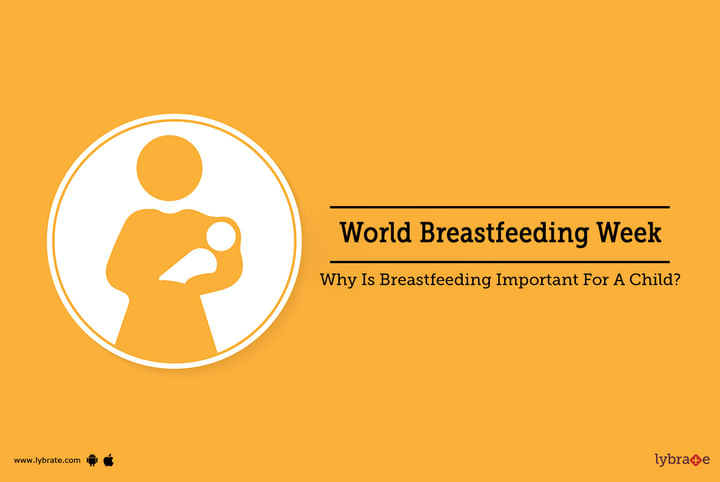World Breastfeeding Week - Why Is Breastfeeding Important For A Child?
The 7 days between 1st August to 7th August will be observed as the World Breastfeeding Week this year. It is organized by the WHO every year and governments, NGOs and individuals across the world participate. The goal is to increase awareness about the importance of breastfeeding for both mother and child.
In this article, we will take a look at the ways breastfeeding can be beneficial for a child.
Reasons why a child should be breastfed-
If you are a mother who has biologically given birth to a child, here are the reasons why you should opt for breastfeeding-
Nutritional supply for your baby - Mother’s milk contains just the right mix of nutrition that an infant and growing baby need for the healthy development of mind and body. The composition of human milk changes with the changing needs of the body. For example, right after birth the milk produced by the mammary glands called colostrums contains very little sugar and lactose and is rich in protein, growth hormones and immunity builders suitable for the requirements of a small infant’s weak digestive system and unformed immunity. The human milk contains the following nutrition (the ratio might change as the baby grows)-
- Lactoferrin prevents the growth of organisms that would drain the baby’s blood iron.
- Secretory IgA protects the baby from allergens.
- Lysozyme helps build balanced gut microbiome that is crucial for immunity and metabolism.
- Bifidus factor sustains lactobacillus- a type of good bacteria that can destroy bad bacteria.
- Fat is important for brain and nervous system development of the baby.
- Vitamins like riboflavin, thiamine, pantothenic acid, niacin help in overall development, strengthening bones and teeth, creating energy, muscle growth, the transmission of neural signals etc. Mothers should consume plenty of vitamins or their milk will be deficient in them.
- Carbohydrates also boost good bacteria growth in the stomach and help in absorption of magnesium, phosphorus and calcium.
- Vital minerals such as iron, calcium, sodium, zinc, magnesium and selenium trigger hormone production, create bone and teeth cells, maintain heart rhythm and fluid balance, contract and relax muscles, transport oxygen, produce genetic material etc.
Protection from illnesses - When a baby is fed mother’s milk the foundation to a strong immunity that will last a lifetime is laid. Human milk provides the baby with antibodies, this is especially true in the case of colostrum. Since the mother has been exposed to viruses and bacteria during her lifetime, her immunity has produced antibodies and these seep into her milk and go into her child during breastfeeding. These antibodies create a defence wall at the baby’s throat, nose and digestive tract. Mother’s milk will reduce the likelihood of-
- Common cold and flu
- Middle ear infection
- Digestive diseases
- Respiratory tract illnesses
- Allergies
- Celiac disease
- Diabetes
- Inflammatory bowel disease
Proper weight gain - Obesity is a killer and breastfed babies are less likely to become obese later on than formula-fed babies. Human milk ensures that babies have leptin in their bodies. This hormone is an appetite regulator.
So go ahead and nurse your child. You should continue with breastfeeding for at least 6 months.



+1.svg)
